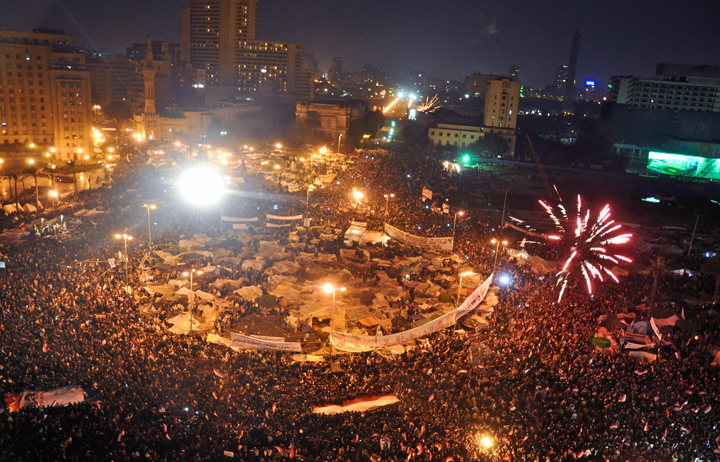The Arab Uprisings: A Series of Decolonial Reflections Ten Years On
Written by Dr Sarah Marusek

Throughout this May, Northern Notes will feature scholars critically exploring some aspect of the Arab Uprisings ten years on, providing new insights, often from the margins.
Ten years ago, the world was quite a different place, especially across the Middle East and North Africa (MENA). These days, nobody can escape the global Covid pandemic and its government-imposed lockdowns; but even before this health crisis began, the Arab street was not the same place that it was ten years ago. Back then, thousands of people were bravely marching in the streets to protest against authoritarian governments and poor living standards, collectively demanding for a better future. International viewers were able to watch these revolutionary movements unfolding, livestreamed by Al Jazeera. What a world away that is from today, a moment in history when so many of us are distracted by our own isolation, in various stages of lockdown, unable to gather with loved ones. Meanwhile, life conditions for most Arabs continue to deteriorate, with or without the pandemic.
What exactly derailed the Arab Uprisings? Even in retrospect, it is difficult to answer this question. I was living in Beirut and staying with two Iranian journalists when the Tunisian Uprising took off in December 2010. The excitement in the office was palpable, as we all fact checked the accounts of citizen journalists covering the demonstrations. Soon after, protests erupted in Egypt, Bahrain, Yemen, Libya, Sudan and Syria. The mood in the region was euphoric, but while many seemed to agree that a change was necessary, it soon became clear that there would be vast disagreements about what that change actually meant, especially when Islamists gained democratic majorities at the polls in Egypt. Indeed, the fear of Islamist governance was so powerful in Egypt that millions of Egyptians went on to support a brutal military coup on 3 July 2013, overthrowing the democratically elected president and ultimately leading to even more state oppression than before the uprising.
Conditions for Arabs living in Israel/Palestine, Syria, Yemen and Libya, in particular, remain extremely dangerous, due not only to regimes that have successfully silenced any internal dissent, but also to regional and international forces meddling in internal conflicts over who gets to rule. While the pandemic has diverted our attention away from these struggles, focussing our minds instead on the pain and suffering closer to home, as long as our governments continue to sell arms to autocratic regimes fuelling the violence in MENA, we are all complicit in the pain and suffering that continues to plague the region.
In recognition of the destructive role that colonial powers continue to play in the region, we particularly invite perspectives that diverge from mainstream media and scholarly approaches, instead offering a decolonial – or decentred – narrative and analysis. We especially hope to highlight those voices that are living in and/or resisting from the margins, in their own unique ways. These voices may not be marginal in the traditional sense, but they do all shed new and perhaps even unexpected insights into the changing social dynamics in the region. Through this series, we wish to salute those Arab revolutionaries who continue to dream of decolonial futures, often at great expense to their own personal wellbeing and security. If you wish to contribute a blog to this series, please contact the series editor, Dr. Sarah Marusek: s.marusek@leeds.ac.uk.
Author
Dr Sarah Marusek
Research Fellow
